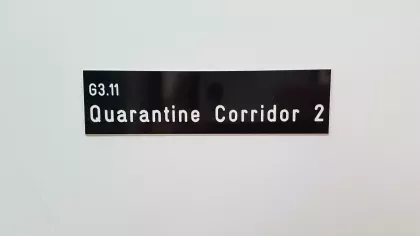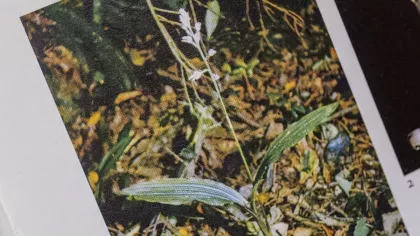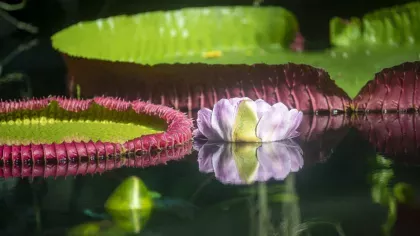20 October 2023
Help us stamp out plant theft at Kew
If you love plants, please leave them in the ground.

Imagine that you’ve spent years working on a project – something you hope will bring some good into the world. It takes all your attention and skill, and you’re proud of the results of your hard work. Then while your back is turned, a stranger picks it up and walks away with it.
This happens each year when plants are stolen from Kew’s living collections. Many of Kew’s rare or exotic plants are tempting targets for thieves who sell plants illegally, or keen gardeners looking for something special for their collections.
'Our horticulturists and botanists have spent many hours growing and tending to the plants at Kew - often very valuable rare plants. It feels to them like someone’s casually come along and destroyed their work. It’s like scribbling on someone’s painting' says Simon Toomer, curator of living collections at Kew.

Plants on the brink
Most famously, a specimen of the world’s smallest and rarest waterlily, Nymphaea thermarum, was stolen from the Princess of Wales Conservatory in 2014.
The waterlily was thought to be extinct in the wild (a small new population has recently been found in a new location); it had been brought back from the brink by Kew botanical horticulturist Carlos Magdalena and nearly all the surviving plants were in Kew’s collection. The thief was never found.
The true value of these plants can’t be measured in dollars or pounds. For our planet, every plant species is priceless.
Every time a plant species vanishes, we may lose the animals it fed or sheltered, the food or medicine it might have given us, the impact it had on the land where it grew and so much more that we’ll never know.

This is why Kew is on the frontlines of conservation efforts around the world, working to protect plants from habitat loss, climate change and poaching.
Our scientists work with UK law enforcement to crack down on international plant crime. When we collect plants or seeds from the wild to preserve them, we sample only what we need and under strict agreement with the donor countries.
We hope that visitors will enjoy our beautiful gardens and glasshouses, and come away with a little more love and understanding of the plant world. It’s always upsetting when people take plants for themselves instead.
'Sometimes people think it’s okay to take cuttings, or a seed – but it is still theft and can have a big impact' says Simon.

Keep it clean
Kew operates under strict quarantine rules when we bring any plant material into or out of the Gardens, right down to flower arrangements for weddings.
Taking cuttings from our plants with tools from outside the Gardens exposes Kew plants to diseases like box blight, which can spread through our collections with potentially devastating results for rare and delicate species.
That’s also why we ask visitors not to bring in their own plants for advice, even if the plant looks healthy.

The other risk is that a stolen non-native plant – whether it’s the whole plant or a cutting - may become invasive in other environments.
We do our best to assess weed potential of new introductions, but even with our thorough precautions there’s always a risk. We need your help to protect the plants in our care as well as the UK’s native ecosystems.
'It’s not just our rules. Under UK law, all plants need a "plant passport" when they’re moved between nurseries or gardens. Taking a plant from Kew is not just theft, it is likely to be against plant health regulations' Simon advises.
The best way to show your love for plants is to leave them where they are. If you spot anyone at Kew acting suspiciously, please let a member of staff know. And if you’d like to take a plant home with you from Kew, we’d love to see you at our garden shop at Victoria Plaza.


